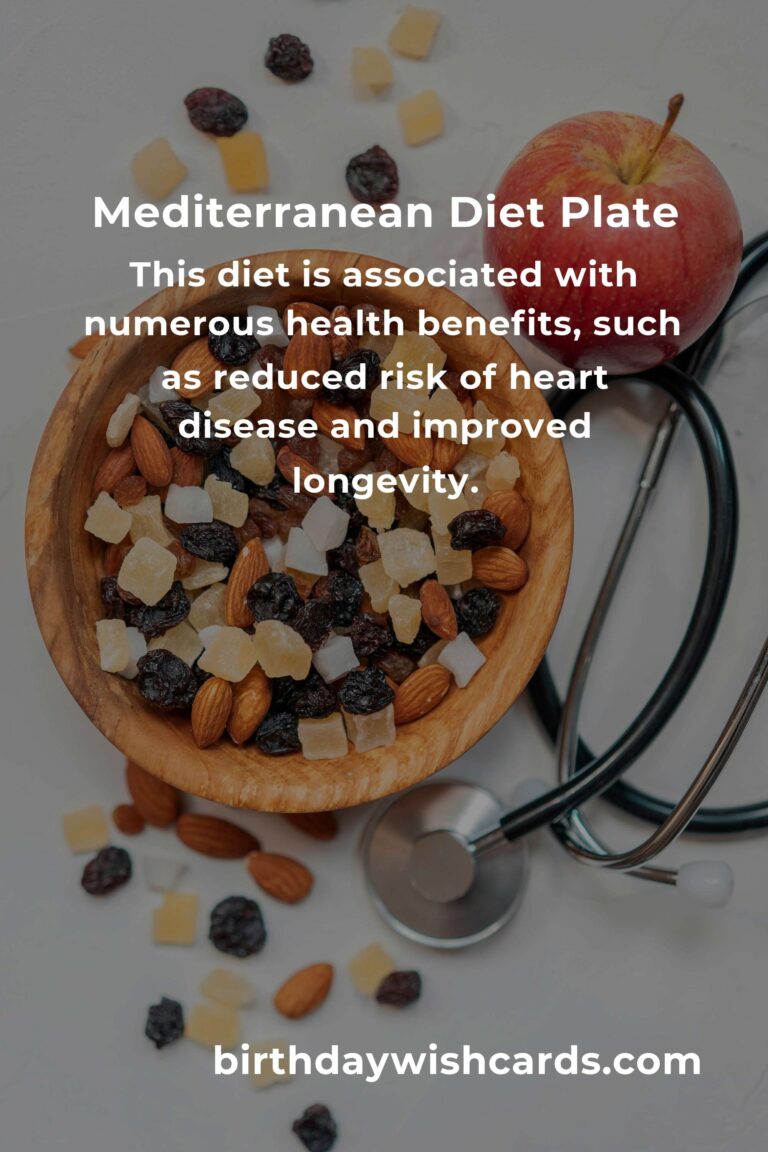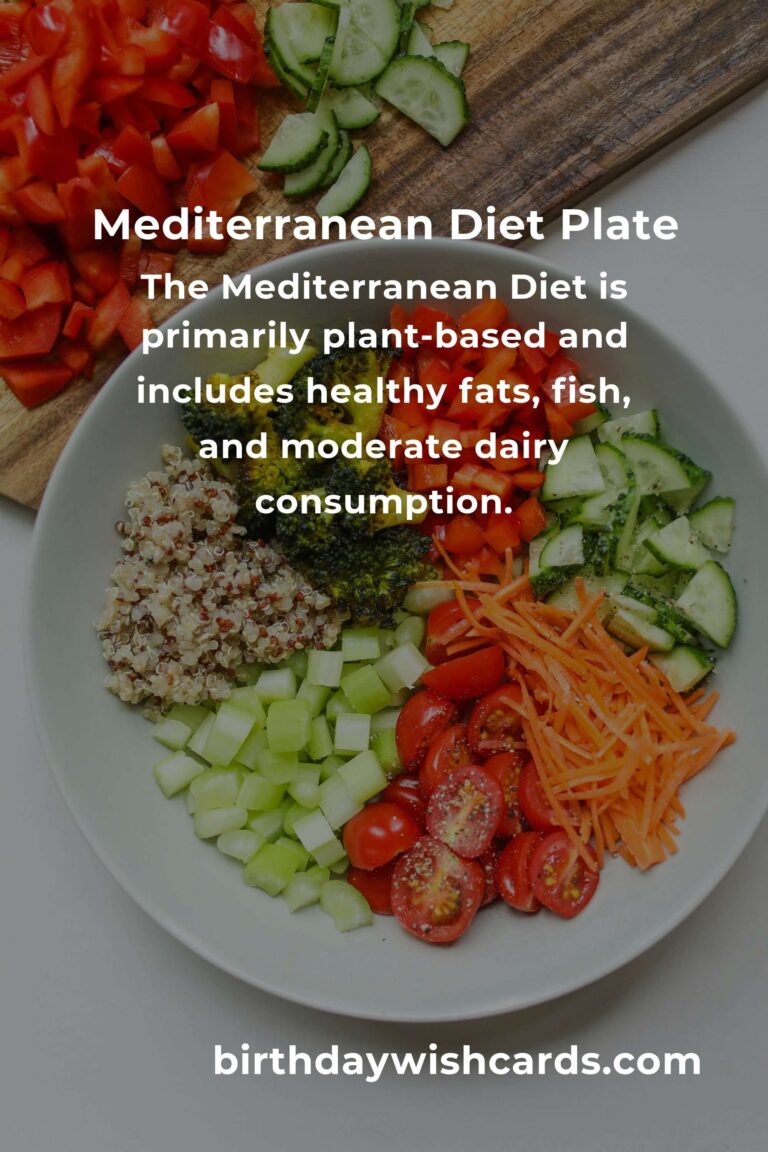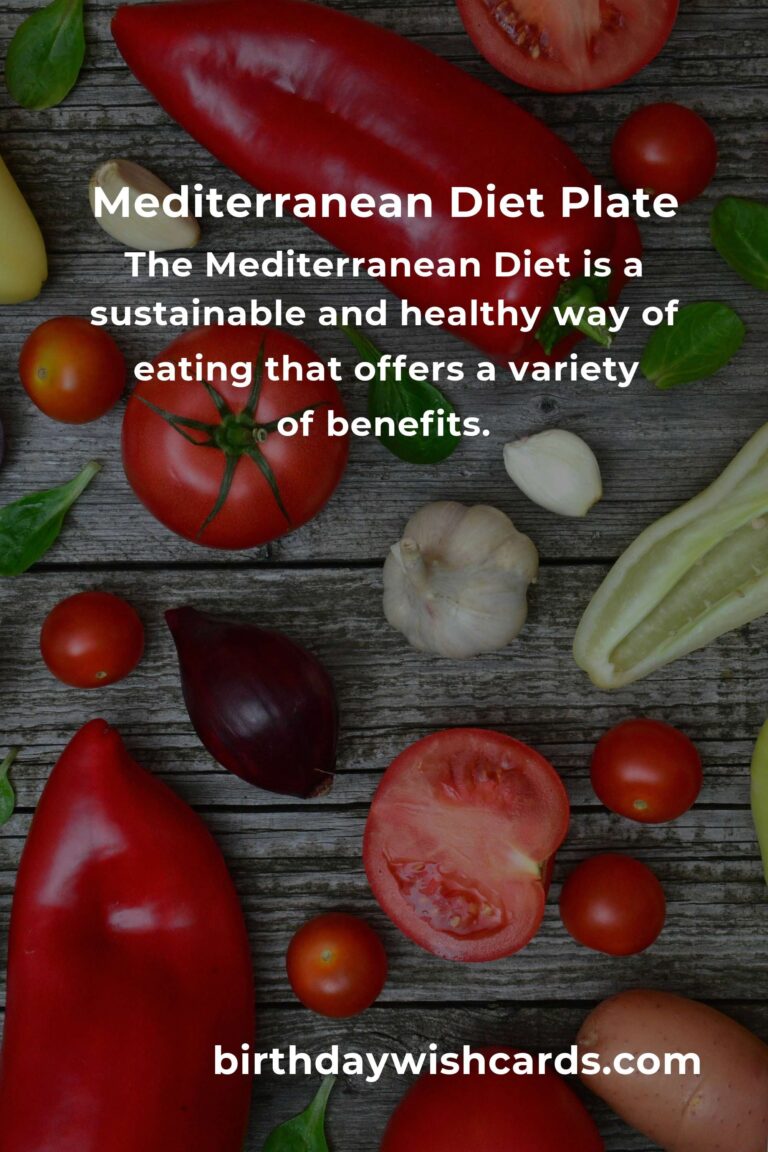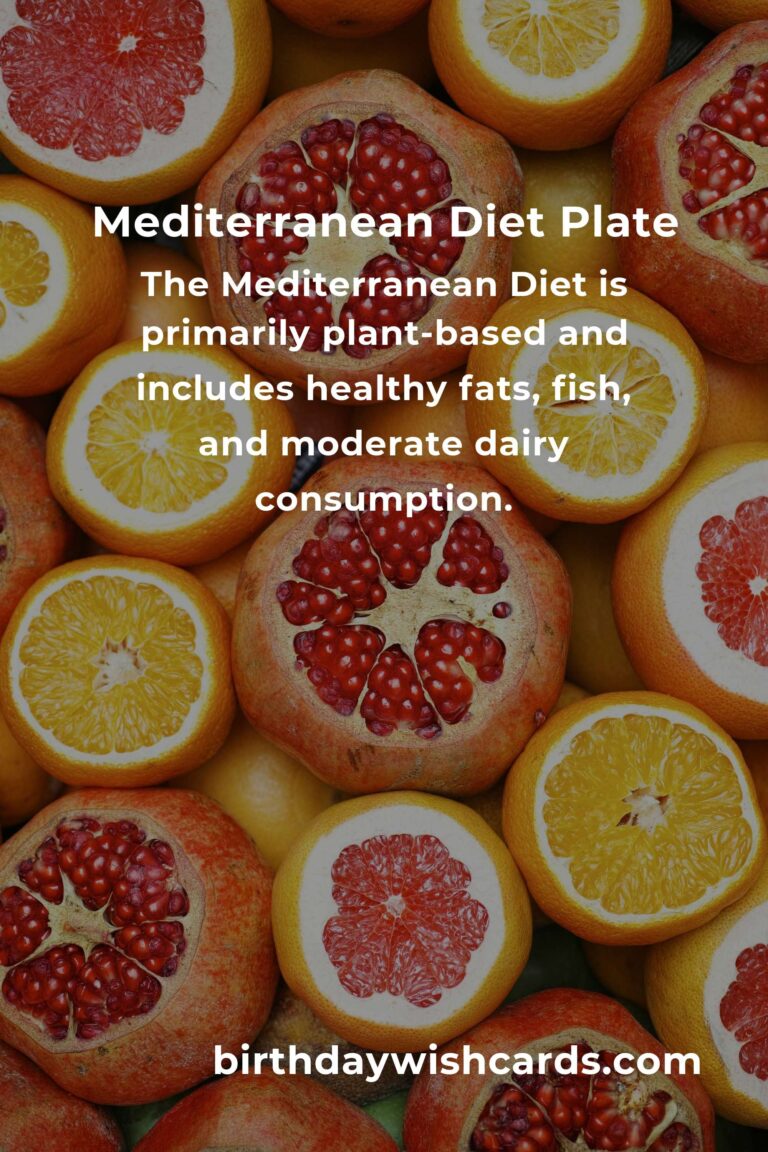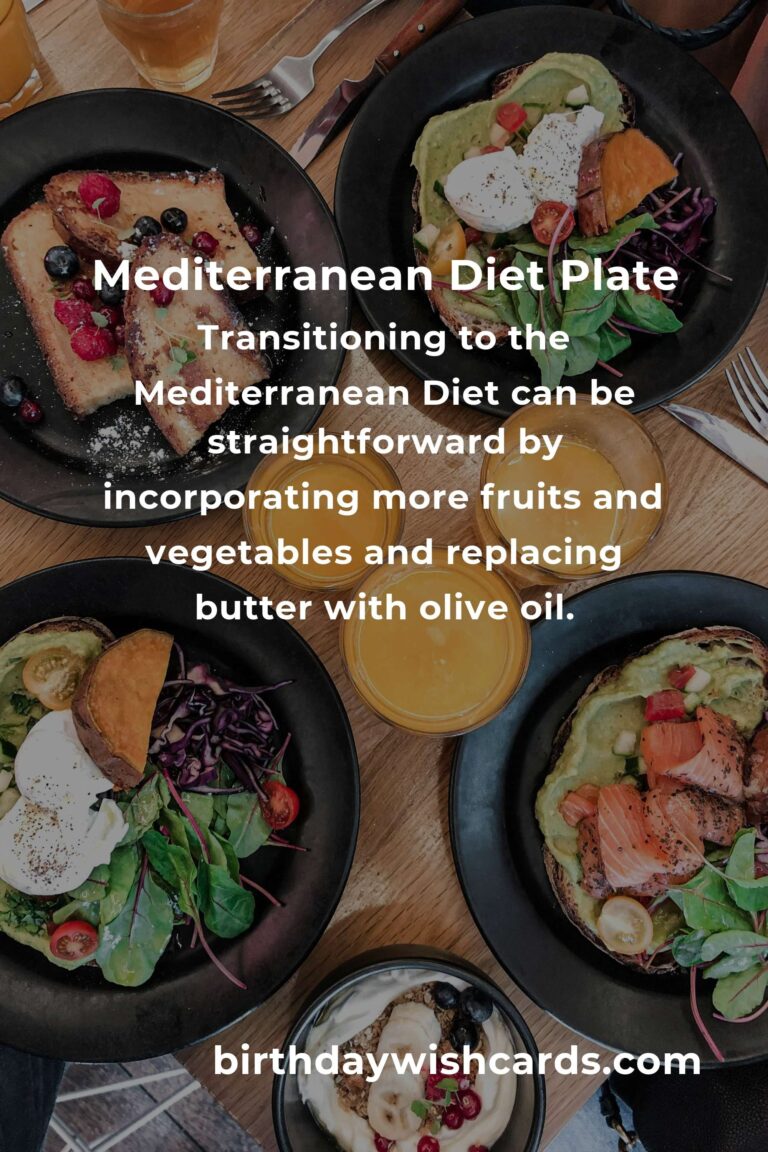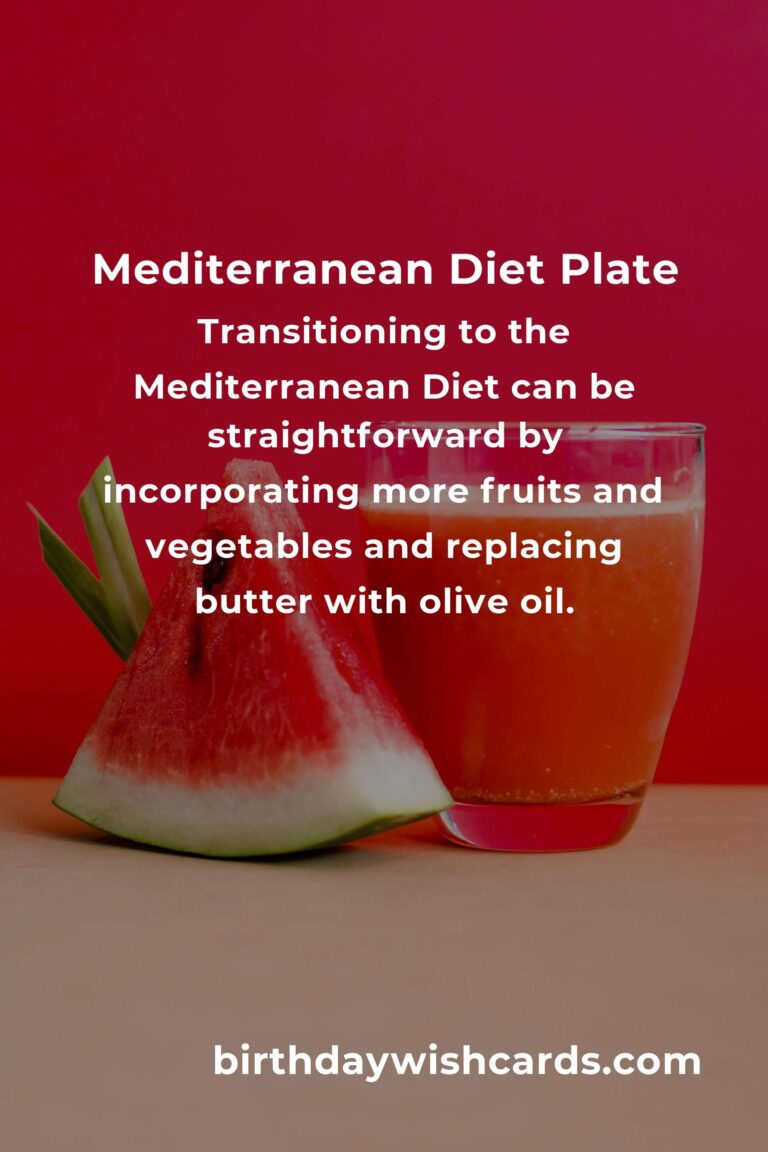
The Mediterranean Diet is not just another fad diet; it’s a way of eating that has been around for centuries. Originating from the countries surrounding the Mediterranean Sea, this diet emphasizes eating whole, unprocessed foods, and includes a high consumption of fruits, vegetables, whole grains, legumes, and olive oil. With numerous health benefits, the Mediterranean Diet is ideal for those looking to improve their overall well-being.
Understanding the Basics of the Mediterranean Diet
The Mediterranean Diet is primarily plant-based but does not exclude other food groups. It incorporates a balanced intake of fruits, vegetables, whole grains, nuts, seeds, and legumes. Olive oil is the primary source of fat, while fish, poultry, and dairy are included in moderation. Red meat and sweets are consumed sparingly. This diet also emphasizes the importance of physical activity and enjoying meals with others.
Health Benefits of the Mediterranean Diet
Research has consistently shown that the Mediterranean Diet can lead to numerous health benefits. These include reduced risk of heart disease, lower levels of LDL cholesterol, reduced risk of Alzheimer’s disease, and improved longevity. The diet’s emphasis on healthy fats, such as those found in olive oil and fish, contributes to these positive health outcomes.
Getting Started with the Mediterranean Diet
For beginners, transitioning to the Mediterranean Diet can be straightforward. Start by incorporating more fruits and vegetables into your meals. Replace butter with olive oil and choose whole grains over refined grains. Include fish in your diet twice a week, and reduce your intake of red meat. It’s also beneficial to enjoy meals with family and friends, as the social aspect is an important component of the Mediterranean lifestyle.
Sample Mediterranean Diet Meal Plan
Here’s a sample meal plan to get you started:
- Breakfast: Greek yogurt with mixed berries and a sprinkle of nuts.
- Lunch: Quinoa salad with chickpeas, cucumber, tomatoes, and olives, drizzled with olive oil and lemon juice.
- Dinner: Grilled salmon with a side of roasted vegetables and a whole grain roll.
- Snacks: Fresh fruit or a handful of almonds.
Common Misconceptions About the Mediterranean Diet
Some people believe that the Mediterranean Diet is solely a weight-loss diet, but its primary focus is on long-term health and wellness. Others might think it’s expensive, yet it can be affordable with careful planning and choosing seasonal produce. It’s also important to note that the diet does not require you to eliminate entire food groups, making it easier to maintain.
Conclusion
The Mediterranean Diet is a sustainable and healthy way of eating that offers a variety of benefits. Whether you’re looking to improve your heart health, reduce the risk of chronic diseases, or simply enjoy delicious and nutritious meals, the Mediterranean Diet is worth considering. By focusing on whole foods, healthy fats, and a balanced lifestyle, you can embark on a journey to better health and wellness.
The Mediterranean Diet emphasizes eating whole, unprocessed foods, including a high consumption of fruits, vegetables, and olive oil.
This diet is associated with numerous health benefits, such as reduced risk of heart disease and improved longevity.
The Mediterranean Diet is primarily plant-based and includes healthy fats, fish, and moderate dairy consumption.
Transitioning to the Mediterranean Diet can be straightforward by incorporating more fruits and vegetables and replacing butter with olive oil.
The Mediterranean Diet is a sustainable and healthy way of eating that offers a variety of benefits.
#MediterraneanDiet #HealthyEating #Nutrition #DietTips #Wellness


